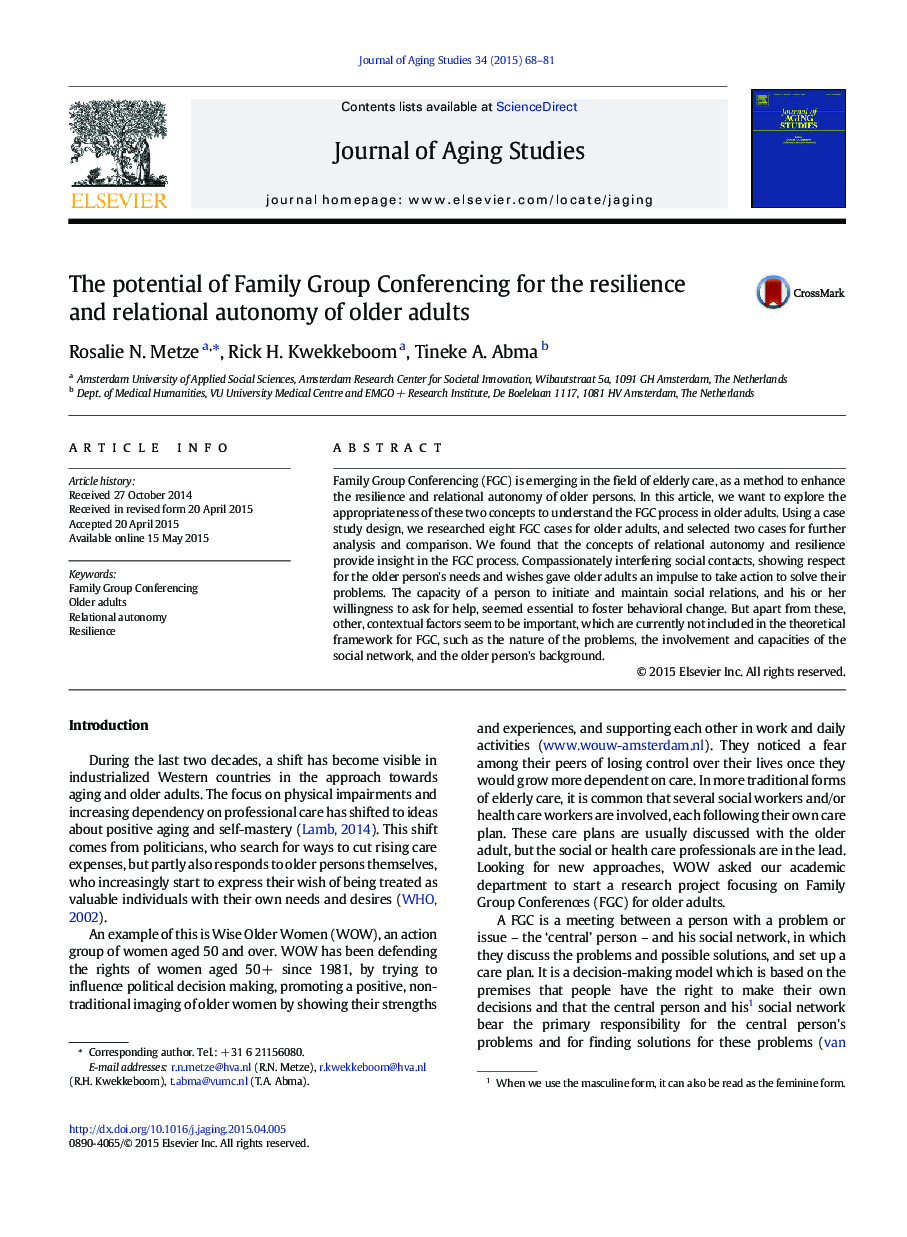| Article ID | Journal | Published Year | Pages | File Type |
|---|---|---|---|---|
| 1081770 | Journal of Aging Studies | 2015 | 14 Pages |
•We researched Family Group Conferencing (FGC) for older adults.•We analyzed two contrasting FGC cases using resilience and relational autonomy.•Social contacts who interfere with compassion can activate older adults.•The older adults' social skills and self-reflection seem to influence FGC outcomes.•Additional influences are: nature of the problems, social network and older adults' background.
Family Group Conferencing (FGC) is emerging in the field of elderly care, as a method to enhance the resilience and relational autonomy of older persons. In this article, we want to explore the appropriateness of these two concepts to understand the FGC process in older adults. Using a case study design, we researched eight FGC cases for older adults, and selected two cases for further analysis and comparison. We found that the concepts of relational autonomy and resilience provide insight in the FGC process. Compassionately interfering social contacts, showing respect for the older person's needs and wishes gave older adults an impulse to take action to solve their problems. The capacity of a person to initiate and maintain social relations, and his or her willingness to ask for help, seemed essential to foster behavioral change. But apart from these, other, contextual factors seem to be important, which are currently not included in the theoretical framework for FGC, such as the nature of the problems, the involvement and capacities of the social network, and the older person's background.
